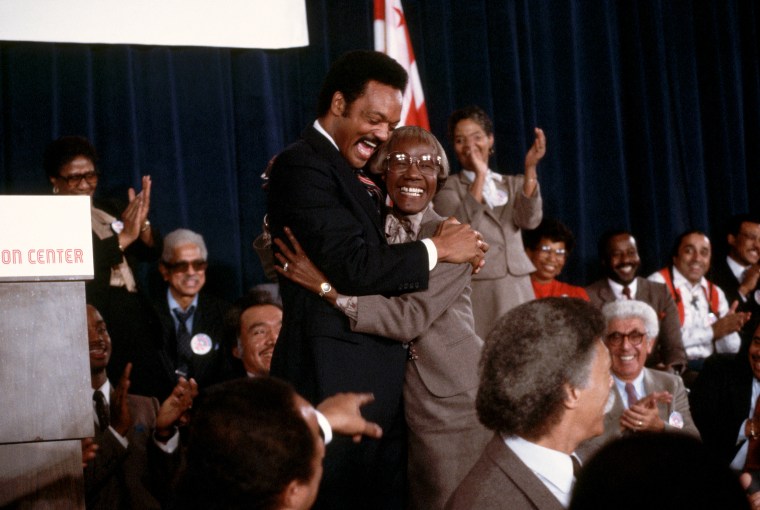In 1983, civil rights leader and former protégé of Martin Luther King Jr., Rev. Jesse Jackson announced his candidacy for president of the United States.
Jackson galvanized black people around the country to engage in a campaign for an office many blacks before Barack Obama believed was set up to prevent their kind from occupying.
Although Jackson wasn’t the first African-American to run for president as Shirley Chisholm made an earlier bid, Jackson’s run was intense as it was exciting, noted Kimberlé Williams Crenshaw of the UCLA and Columbia Law School. Crenshaw added: “Blacks believed Jackson had a real chance with an agenda that actually represented what democracy could really look like in this country.”
Young people across the country volunteered in their numbers to work on Jackson’s presidential campaign. Jackson also reached out to voters far beyond the Black community. He brought on board white feminists, white farmers and the first GLBT leaders within the Democratic Party, according to political strategist Donna Brazile.
“Come and take a seat at this table. I have enough room for everybody,” he appeared to say, added Ms. Brazile.
Surprisingly, Jackson struggled to receive endorsements from many high profile politicians. Among civil rights veterans, Jackson remained a polarizing figure. Andrew Young refused to endorse him, and so did Coretta Scott King, widow of Martin Luther King Jr., as well as Julian Bond.
Civil rights activist Rev. Al Sharpton submitted, “most of the black leaders were against him running. They had their own arrangements with the Democratic Party and establishment,” adding, “they didn’t think it could work but he did very well. Better than they all thought.”
Jackson’s big test came on Super Tuesday, with primaries in three Southern states with significant black populations: Alabama, Florida and Georgia.
And while he faltered in some states, black voters did not disappoint Jackson as he was the big winner, claiming an outright majority of black support in the three states, according to NBC News’ black voter data analysis.
“It was a milestone moment for Jackson and for black politics. His best showing was in Georgia, where he won 21 percent of the statewide vote — the best a black candidate had ever fared in a binding presidential primary. He hit the matching fund threshold and also cleared a more informal barrier with black voters who hadn’t known what to make of his candidacy. As the race moved on, Jackson won increasingly large shares of the black vote, powered by grassroots energy and pride that blunted the impact of Mondale’s endorsements.”
Over three million people cast the votes for Jackson. Some estimated that as many as 20% of the African-Americans who voted for him had never voted before. He surprised many when he took third place overall, behind Senator Gary Hart and former Vice President Walter Mondale, who eventually won the nomination.

He won five primaries and caucuses: Louisiana, the District of Columbia, South Carolina, Virginia, and one of two separate contests in Mississippi. He thus became the first African-American candidate to win any major-party state primary or caucus.
Though he fell short of winning the democratic nomination, Jackson’s 1984 presidential bid changed the political landscape forever.
Long before there was a Barack Obama who became President-elect on November 4, 2008 and the first African-American elected President; there was a Rev. Jesse Jackson who thought all, especially African-Americans that their voice mattered.










